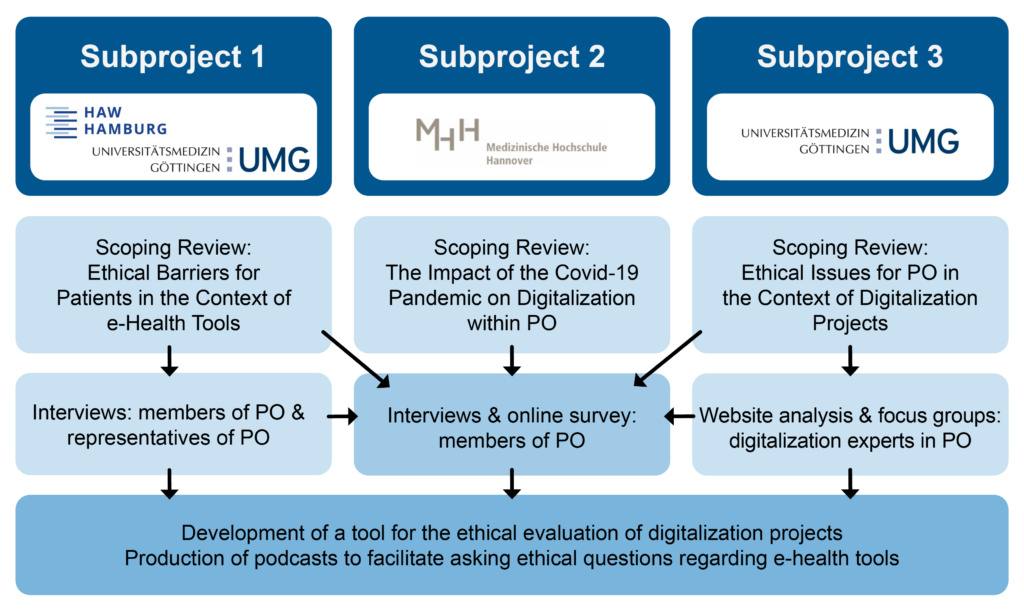Project
Patient organizations (POs) represent the interests of people living with a disease or disability. Many POs now rely on digital tools—or actively advocate for digital-health projects—to improve care and enable transnational medical research. This is particularly important for people with rare diseases.
When using e-health solutions, however, ethical challenges may arise that can hinder competent adoption. Issues such as autonomy, trust, responsibility and control over one’s own medical data are especially relevant.
The PANDORA research network therefore examines the ethical and social implications of developing and deploying e-health technologies in healthcare. The network will create several services to strengthen the digital-health literacy of patients and their representatives, empowering them to make informed, self-determined decisions about digital tools. Planned services include:
- an assessment tool for POs to evaluate the ethical dimensions of digitalization projects, and
- short educational videos or podcasts that explain key ethical aspects of digital health.
In addition, the patient organization Mukoviszidose e. V., a patient-representative advisory board and a scientific advisory board are involved in the project’s design and implementation.
Overview of the project structure

The subprojects



